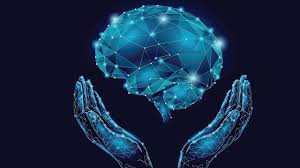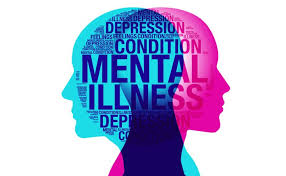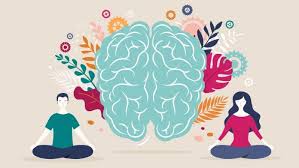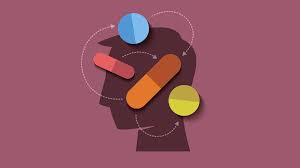
Mental health includes our emotional, psychological, and social well-being. It affects how we think, feel, and act. It also determines how we handle stress, relate to others, and make choices. Mental health is an important tool throughout your life.
Mental health problems affects your thinking, your mood, and behavior. Many factors contribute to mental health problems such as:
- Biological factors such as:
- Genetics (heredity): Mental illnesses sometimes run in families, suggesting that people who have a family member with a mental illness may be somewhat more likely to develop one themselves. Susceptibility is passed on in families through genes. Experts believe many mental illnesses are linked to abnormalities in many genes rather than just one or a few and that how these genes interact with the environment is unique for every person (even identical twins). That is why a person inherits a susceptibility to a mental illness and doesn’t necessarily develop the illness. Mental illness itself occurs from the interaction of multiple genes and other factors — such as stress, abuse, or a traumatic event — which can influence, or trigger, an illness in a person who has an inherited susceptibility to it.
- Infections: Certain infections have been linked to brain damage and the development of mental illness or the worsening of its symptoms. For example, a condition known as pediatric autoimmune neuropsychiatric disorder (PANDAS) associated with the Streptococcus bacteria has been linked to the development of obsessive-compulsive disorder and other mental illnesses in children.
- Brain defects or injury: Defects in or injury to certain areas of the brain have also been linked to some mental illnesses.
- Prenatal damage: Some evidence suggests that a disruption of early fetal brain development or trauma that occurs at the time of birth — for example, loss of oxygen to the brain — may be a factor in the development of certain conditions, such as autism spectrum disorder.
- Life experiences, such as trauma or abuse
- Family history of mental health problems
Mental health problems are common but help is available. People with mental problems can get better and many recover completely.
Early Warning Signs of Mental Illness

- Sleep or appetite changes — Dramatic sleep and appetite changes or decline in personal care
- Mood changes — Rapid or dramatic shifts in emotions or depressed feelings
- Withdrawal — Recent social withdrawal and loss of interest in activities previously enjoyed
- Drop in functioning — An unusual drop in functioning, at school, work or social activities, such as quitting sports, failing in school or difficulty performing familiar tasks
- Problems thinking — Problems with concentration, memory or logical thought and speech that are hard to explain
- Increased sensitivity — Heightened sensitivity to sights, sounds, smells or touch; avoidance of over-stimulating situations
- Apathy — Loss of initiative or desire to participate in any activity
- Feeling disconnected — A vague feeling of being disconnected from oneself or one’s surroundings; a sense of unreality
- Illogical thinking — Unusual or exaggerated beliefs about personal powers to understand meanings or influence events; illogical or “magical” thinking typical of childhood in an adult
- Nervousness — Fear or suspiciousness of others or a strong nervous feeling
- Unusual behavior – Odd, uncharacteristic, peculiar behavior
One or two of these symptoms alone can’t predict a mental illness but may indicate a need for further evaluation. If a person is experiencing several at one time and the symptoms are causing serious problems in the ability to study, work or relate to others, he/she should be seen by a physician or mental health professional. People with suicidal thoughts or intent, or thoughts of harming others, need immediate attention.
Mental Illness Treatment

Treatment varies with the type of mental disorder but almost always involves psychiatric counselling. Sometimes medication might be prescribed as well.
Most common types include:
- Clinical Depression
The way to go about this disorder mainly involves medication, talking to a therapy or a combination of the two. Increasingly, research suggests that these treatments may normalize brain changes associated with depression.
Therapy

- Cognitive Therapy – a talk therapy focused on modifying negative thoughts, behavior , and emotional responses.
- Behavioral Therapy – a therapy focused on modifying harmful behavior associated with psychological distress.
- Psychotherapy – treatment of mental behavioral disorders through talk therapy.
Medication

- SSRIs – eases symptoms of depressed mood and anxiety. This medication treats depression by increasing levels of serotonin in one of the chemical messengers that carry signals between brain nerve cells. SSRIs blocks the reabsorption of serotonin into neutrons.
- Antidepressant– taking medications to help relieve symptoms of depression. Some antidepressants
- Anxiolytic – relieves anxiety and tension. May promote sleep.
- Antipsychotic -reduces or improves the symptoms of certain psychiatric conditions.
2. Anxiety disorder
Treatment consists counselling or medication, including antidepressants.
Therapy and self-care
- Lifestyle drug – avoid alcohol, reduce caffeine intake, physical exercise, quitting smoking, relaxation technique, stress management.
- Meditation – improves mental health and helps with relaxation.
- Psychotherapy – treatment of mental or behavioral disorders through talk therapy.
- Cognitive behavioral therapy – a focused on modifying negative thoughts, behavioral and emotional responses.
Medication
- Anxiolytic – relieves anxiety and tension. May promote sleep.
- Antidepressant – taking medications designed to relieve symptoms of depression.
- Sedative – causes drowsiness, calmness and dulled senses.
- Nerve pain medication – blocks pain caused by damaged nerves.
3. Bipolar disorder
Treatment is usually lifelong and often involves a combination of medications and psychotherapy.
Therapy
- Cognitive behavioral therapy – a talk therapy focused on modifying negative thoughts.
- Psychoeducation – education about mental health that also serves to support, validate and empower patients.
- Family therapy – psychological counselling that helps families resolve conflicts and communicate more effectively.
- Psychotherapy – treatment of mental or behavioral disorders through talk therapy.
Medication
- Anticonvulsant– prevents or controls seizures, relieves pain and treats symptoms of certain psychiatric disorders.
- Antipsychotic – reduces or improves the symptoms of certain psychiatric conditions.
- SSRIs – eases symptoms of depressed mood and anxiety.
Mental Health and Wellness

Positive mental health allows people to:
- Cope with the stress of life
- Realize their full potential
- Work productively
- Make meaningful contributions to their communities
Ways to maintain positive mental health include:
- Developing coping skills
- Staying positive
- Connecting with others
- Getting professional help if you need it
- Getting enough sleep
- Helping others
